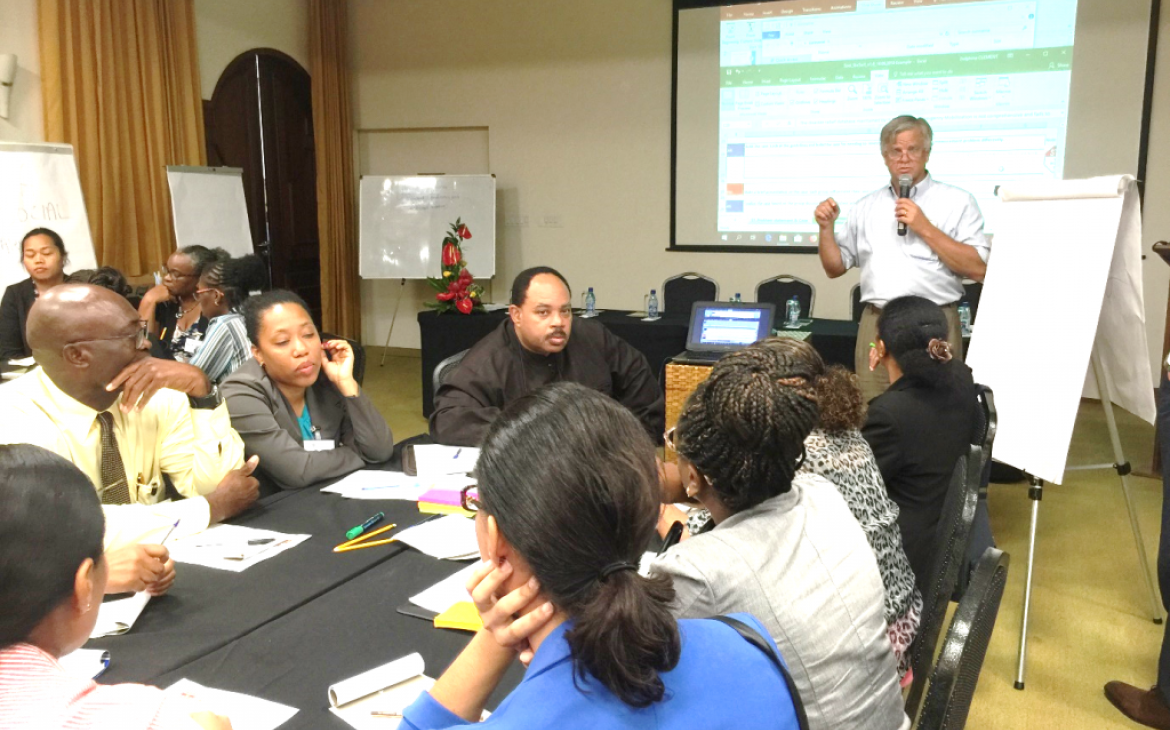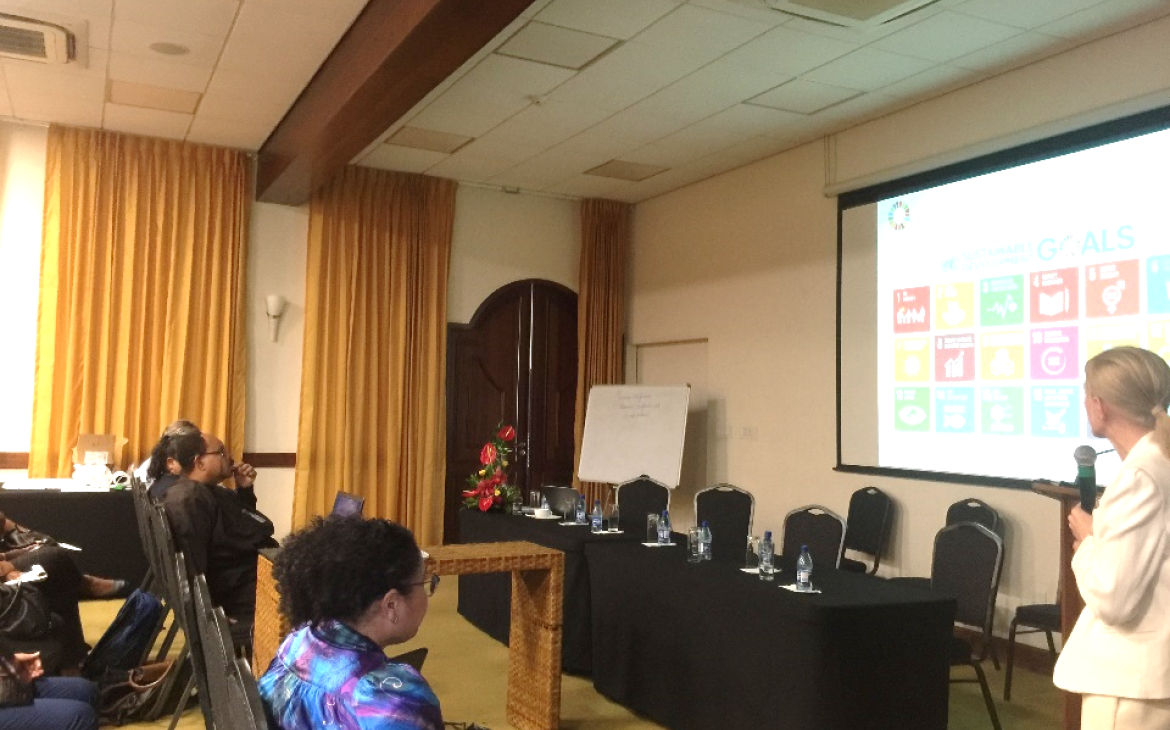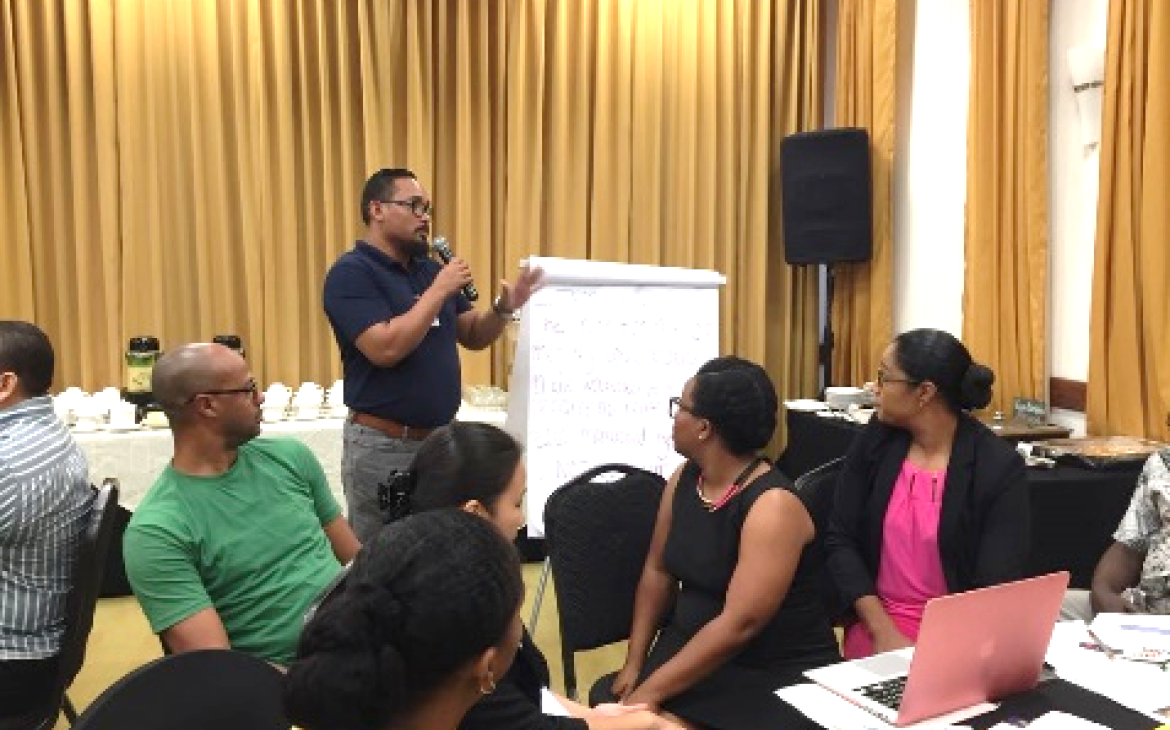Following the successful piloting of StaTact with 14 African and Asian countries using regional format, StaTact has now been rolled out at national level. Suriname became the first pilot country to have organized a national StaTact workshop to address critical data gaps and plan actions in support of SDG monitoring over the next 12 months. This is also the first pilot addressing the special needs of the Small Island Developing States (SIDS) in the Caribbean region.
On 20-22 June 2018, the General Bureau of Statistics (GBS) of Suriname, UNITAR and UN Statistics Division (UNSD) organized the first national StaTact workshop in Paramaribo, Suriname. The workshop brought together the representatives of the GBS, Planning Authority, line ministries, as well as research centers and private sector. A total of 80 stakeholders partook in the workshop and related discussions around pressing data gaps and bottlenecks in data governance preventing effective monitoring and the implementation of the SDGs. The workshop used the StaTact methodology developed by UNITAR and UNSD to enable participants to tactically leverage institutional and coordination aspects to help fill in data gaps in priority areas using SDG indicators and national development results frameworks as a point of reference. The purpose of the StaTact tool is to help countries address bottlenecks and plan tactic actions to attain realistic quick wins within a short period and with minimum costs involved.
This three-day workshop has also been an opportunity to improve the awareness of the 2030 Agenda and SDGs among key Government and other stakeholders and inform them on the emerging practices from some SIDS countries and other Member States that have advanced on the SDGs domestication. A special emphasis has been placed on raising the awareness about various components of the follow-up and review framework for the SDGs at global and national level and the linkages between national and global SDG reporting.
The workshop kicked off with opening speeches by the Chief Statistician of GBS Mr. Iwan Sno, Mr. Gabriel Gamez, UNSD, Ms. Elena Proden, UNITAR, and the Chairman of Committee of Statistics of Suriname Ms. Marlene Troenosetro, the opening was followed by the presentation of the National Statistical System of Suriname and the introductions into international standards and good practices on governance of data ecosystems, key principles of the 2030 Agenda, SDGs, and related review and reporting processes, as well as the broader issues of the domestication of the SDGs and institutional innovation to support cross-cutting approaches. This introductory session was followed by work in groups using the StaTact methodology and facilitated by an expert consultant Mr. Geoffrey Greenwell.
The StaTact as a tool takes groups through 5 stages: the identification of specific measurement problems, mapping to policies and the indicators, analysis of data ecosystems and related governance issues, and action-planning. 5 working groups organized by GBS covered various urgent data problems ranging from social aspects to economic and environmental gaps to purely institutional issues. A consolidated outcome document with key action points has been discussed at the end of the workshop and is being finalized by GBS to help coordinate actions and move the data agenda forward.
In his closing remarks, Mr. Sno noted that the workshop proved very effective in leveraging the governance of production, dissemination and utilization of data to ensure a solid evidence basis for decision-making processes. The multi-stakeholder approach was critical to success highlighting the importance of bringing together data producers and users.
As a next step, the StaTact tool will be showcased at the official side event during the 2018 High-Level Political Forum on Sustainable Development (HLPF) in New York. Selected pilot countries, incl. Uganda and Togo, will share their experience of using the StaTact to help identify solutions that can be implemented within less than a year and discuss national follow-up.
Photos: Participants and facilitators of the workshop




